Sunflower in the Assumption Sisters' garden in Worcester, Massachusetts, named "Semillas da Vida: Seeds of Life" by one of the children who grew up there (Catherine Soley)
(GSR logo/Toni-Ann Ortiz)
Editor's note: Would you like to be a part of The Life? We're collecting applications for our next round of sister panelists to answer questions about how sisters approach aspects of religious life and other things.
Read about how to apply. The deadline is Sept. 15.
Global Sisters Report would like to thank this group of sisters who participated on the 2019-2020 panel, and we hope they will continue to write for us as columnists. We all wish them well.
This month — the last month of the 2019-2020 panel — the sisters share some fascinating personal stories in their answers to this question:
Describe an instance you have had of revisiting your own past experiences and seeing in them how God's loving designs were made known to you.
______
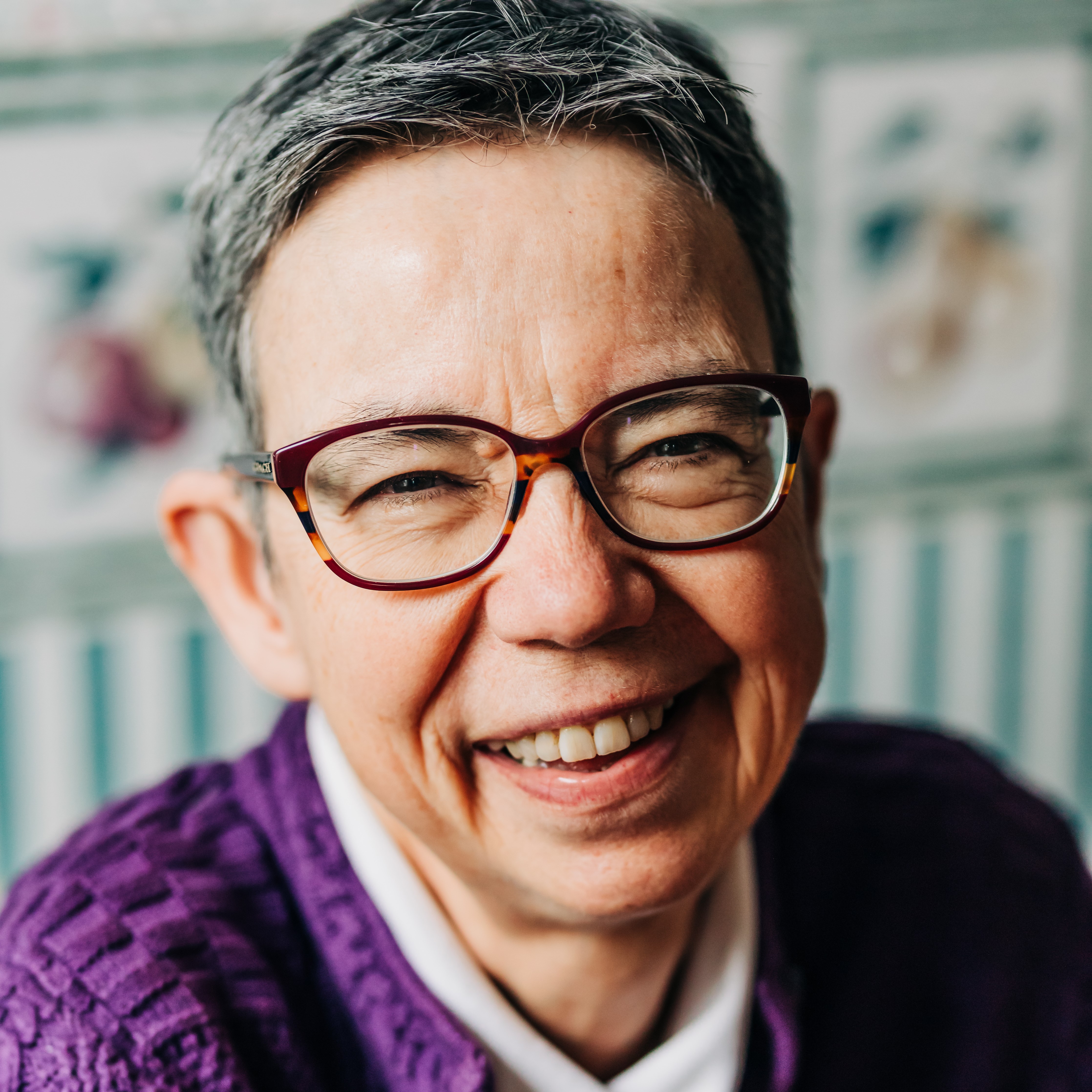 Catherine Soley is a member of the Religious of the Assumption. A "late vocation," she has two daughters and two grandsons. Her ministries have included teaching and directing an English-as-a-second-language program, helping with after-school mentoring, working with college students and elementary-age children of recent immigrants, and overseeing a community garden. Currently living in Lansdale, Pennsylvania, she is the primary caregiver for her mother, practices spiritual direction and serves as provincial councilor.
Catherine Soley is a member of the Religious of the Assumption. A "late vocation," she has two daughters and two grandsons. Her ministries have included teaching and directing an English-as-a-second-language program, helping with after-school mentoring, working with college students and elementary-age children of recent immigrants, and overseeing a community garden. Currently living in Lansdale, Pennsylvania, she is the primary caregiver for her mother, practices spiritual direction and serves as provincial councilor.
"A windstorm arose on the sea, so great that the boat was being swamped by the waves; but He was asleep" (Matthew 8:24).
In the early years of a failing marriage, with two young children and a husband whose eccentricities were fast losing their charm, my boat was being swamped.
I had not yet recognized the Christ asleep in the stern of my boat. Seeking refuge, I found calm seas in my mother-in-law's garden; hers has been a lifetime friendship that has weathered many storms.
Robin had a great love for the natural world. Her garden became my classroom where I studied not only composting, botany and birding, but also patience, forgiveness and fidelity.
Sprawling across 3 acres were terraced beds overflowing with perennials of all colors, shapes and textures. There were heirloom tomatoes, dangling pole beans and pungent herbs. Trying to keep up with this abundance required hours of work, which often slipped into a contemplative rhythm.
Throughout my middle years, I continued to seek refuge in gardens, always finding some way to get my hands into the dirt. There was a growing connection between what I experienced in the garden and my own developing spiritual life. I was discovering a particular kind of solitude: a need that ran deep if, as yet, remained unnamed.
The challenges of initial formation in religious life rocked my boat in profound ways: powerful winds, earthquakes and fire! Being led more deeply into my truest self meant risking my vulnerabilities, embracing my darkness. Only very gradually did I begin to understand that I was not alone in my boat, that it is our boat. Similarly, amid the winds and fire, I began to also sense the quiet whisper and another constant presence.
It was in our community garden that I found the peace and solitude I needed to process what I was experiencing. I began to understand that being in the garden is prayer. The garden is a bridge, connecting my deepest self through creation to Christ, the heart of creation.
Just what happens in the garden, how the garden heals and redeems this world, is difficult to articulate but is indisputable. Speaking of the Holy Spirit, Jesus likens the Spirit to the wind (John 3:8), which blows where it chooses and is known by its effect. So it is in the garden.
A family of friends who come regularly to work in the Semillas da Vida: Seeds of Life garden in Worcester, Massachusetts (Catherine Soley)
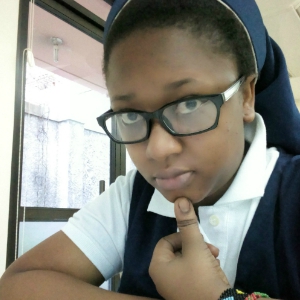 Sandra Wiafewa Agyeman (Ofia) is a Ghanaian member of the Missionary Sisters Servants of the Holy Spirit. She began her ministry in a school in Ghana as an account clerk, helping with registration and admission. Later ministries there included pastoral work with people living with HIV/AIDS, ensuring their children's education, and organizing prayer experiences and recollections. For the past year, she has been attending the Institute of Formation and Religious Studies in the Philippines.
Sandra Wiafewa Agyeman (Ofia) is a Ghanaian member of the Missionary Sisters Servants of the Holy Spirit. She began her ministry in a school in Ghana as an account clerk, helping with registration and admission. Later ministries there included pastoral work with people living with HIV/AIDS, ensuring their children's education, and organizing prayer experiences and recollections. For the past year, she has been attending the Institute of Formation and Religious Studies in the Philippines.
It is June 1, at exactly 10:23 p.m. Here I am in the chapel to review my day. Suddenly, I become aware of the tabernacle lamp getting dimmer and struggling to shine. The contact with the source of power is loose or the bulb is old, I tell myself. I sit watching the bulb as it wrestles with its last energy to shine and signal the presence of Christ. A couple of minutes pass, and predictably, the light gives way to complete darkness.
Seated in total darkness in the chapel, I take a trip down memory lane to a year ago, when I was a young religious missionary, a neophyte in a lifestyle and system that were different from what I was used to. The early days of my missionary "honeymoon" soon disappeared without my awareness, and as a typical introvert, I had less inner stamina to balance my new realities.
I had been plunged into a state similar to the tabernacle lamp that struggled to gleam. It felt like God's grace and love had left me. By degrees, I was getting disconnected from my new community, my source of strength and joy.
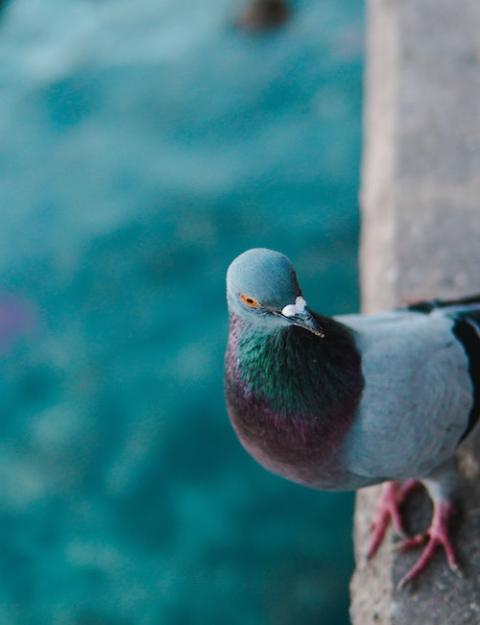
(Unsplash/Angelo Wagan)
It's amazing to recall those moments. It's truly amazing how God stuck by me and stayed with me through my broken moments. It's astounding to realize how God shows his face through the people nearest to me in no other ways but persistent love and concern. God showed his presence in a way that presupposed his trust in my ability to come out beaming with radiance, and I felt like gold tested in fire.
Thanks to God's love, and my love for the mission of the church and my congregation, I find myself in a home with other young women sharing passion for their common vocation and ministry. Like a dove that lives simply — freely yet trustingly — in the one whose support enables it to fly higher, I feel how much joy and how many pleasant surprises God gives to those who live in union with him. Through thick and thin, the Holy Spirit has been instrumental in bringing me to this place.
It is June 2 at 6:30 a.m. The tabernacle lamp is splashing the vividness of the color red; Christ is present. He was silently present the previous night and strongly present in this new day.
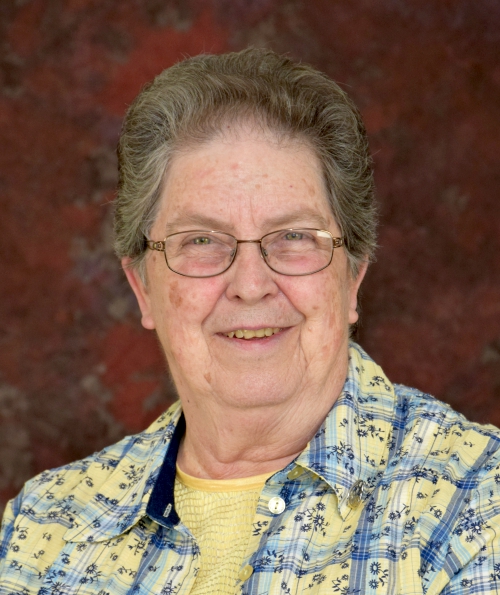 Lucy Bethel is a member of the Sisters of Providence of St. Vincent de Paul. An eighth-generation Bahamian, she held various positions in banking in the Bahamas before entering religious life. Later, she served as director of a center providing full-time care for adult women with mental illnesses. Currently, as director of Providence Spirituality Centre, she is a full-time spiritual/retreat director in Kingston, Ontario.
Lucy Bethel is a member of the Sisters of Providence of St. Vincent de Paul. An eighth-generation Bahamian, she held various positions in banking in the Bahamas before entering religious life. Later, she served as director of a center providing full-time care for adult women with mental illnesses. Currently, as director of Providence Spirituality Centre, she is a full-time spiritual/retreat director in Kingston, Ontario.
Sisters of Providence love to share personal "Providence stories" about the mystery and action of our God in our lives. That confirms my vocation as a Sister of Providence.
My life is a series of Providence stories — miracles, some might say — that began when, as a 7-year-old, I fell from a tree, landed on solid rock and never broke a bone. Even then, I understood that the God of Providence is always there, one step ahead, saving and protecting me.
Miracles just happen on my journey. God builds bridges! A tow truck appears to pull me out of the ditch in a snowstorm, then disappears just as quickly as it appeared. On the New York State Thruway, two complete strangers show up to rescue me when my car breaks down.
My favorite Providence story was in London. All my identification documents, airline ticket, credit cards and money had been stolen. My Canadian colleagues there could identify me, but the complication was that I was not a Canadian citizen. I was a citizen of the Bahamas and would need proof. I did what I have done all my life: I asked God for wisdom and guidance.
The short walk from my hotel to the Bahamian Embassy felt like miles. I did not panic. I knew God was with me. I said to God: "If I were sitting in that office, and a total stranger walked in off the street with no proof of identity and claimed to be a citizen of the Bahamas and in need of a certificate of identification, I would laugh, or at least question her sanity."
As I walked into the Bahamian Embassy, my worst fears materialized. I knew the woman at the desk did not believe my sad story. She excused herself, went into the back office and returned accompanied by a second woman, a stranger to me.
This woman smiled at me and said, "Lucy, we can issue you a certificate of identification because I know who you are. You and I share a mutual best friend in the Bahamas. I have seen you together many times."
Providence was one step ahead of me. She had addressed me by name — and I always know when God speaks, God calls me by name.
I can have no doubt that Providence is alive and active. Each morning, I awaken and hear the words from which women of Providence draw strength: "There is no need to fear the future. Providence is already there."
COVID-19 will never have the last word. Providence will.
Advertisement
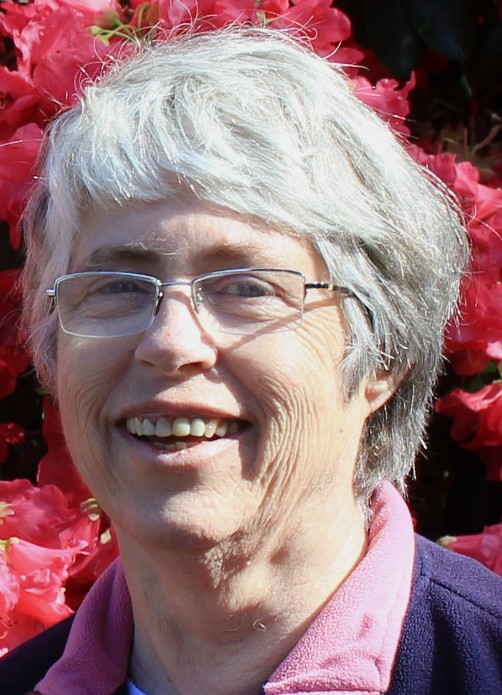 Sheila Campbell is a Medical Missionary of Mary sister of Irish and Brazilian nationality. After an early nursing ministry in Ireland, she did nursing, health education, parish work and pastoral health care work (specializing in HIV/AIDS) as a missionary in Brazil. She later served in congregational administration in Ireland and in Brazil with families affected by urban violence and prostitution. Currently, she serves sick and elderly sisters at her congregation's home in Massachusetts.
Sheila Campbell is a Medical Missionary of Mary sister of Irish and Brazilian nationality. After an early nursing ministry in Ireland, she did nursing, health education, parish work and pastoral health care work (specializing in HIV/AIDS) as a missionary in Brazil. She later served in congregational administration in Ireland and in Brazil with families affected by urban violence and prostitution. Currently, she serves sick and elderly sisters at her congregation's home in Massachusetts.
As a young sister, I was trained as a nurse, but when I first arrived in Brazil, I was thrown into parish pastoral work with absolutely no training or experience. So I followed the advice of the local priests (mostly Irish missionary priests).
I remember once caring for a woman, Dona Maria, who was dying from terminal cancer. I had been giving her pain medication but also bringing her the Eucharist, as she was weak and no longer able to come to church.
One day, a neighbor told me that Maria wasn't really Catholic; she had been practicing Umbanda (one of the Afro-Brazilian religions inherited from the time of slavery) as well as going to Mass. I didn't know what to do, so I asked the priest.

Umbanda tent, São Paulo, Brazil, December 2014 (Wikimedia Commons/Marcos Leandro Lago Palhano)
"No more Communion until she goes to confession," I was told.
In distress, I went back and explained the situation to Maria. She just nodded and said nothing. Within a few weeks, she was dead.
As I grew in my understanding of Brazilian culture and religious traditions, I deeply regretted my decision of adhering so rigidly to church authority. For so many Brazilians, the African traditions are so much a part of their cultural heritage. I began to ask myself: What Celtic pre-Christian traditions do I still cling to in spite of my Catholic upbringing? With Maria, I should have stood up more, been more confident in my own judgment — allowed Christ's teaching of love and inclusiveness to be my guiding light.
Maria died without the sacraments, but she has been in my heart and prayers these last 40 years. Through her, God taught me to be more open, more accepting, more gracious and thankful that God is more loving and forgiving than I could ever be.
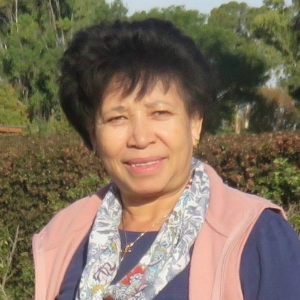 Katy van Wyk is a Dominican Sister of St. Catharine of Siena of King William's Town, South Africa; she lives in Johannesburg. After teaching, she served in leadership as team member and assistant leader, later continuing in mission effectiveness for Dominican schools. Currently, she conducts retreats, volunteers as a community art counselor with underprivileged children, and facilitates empowerment workshops for young women at risk of teenage pregnancy, drug or alcohol abuse and physical/sexual abuse.
Katy van Wyk is a Dominican Sister of St. Catharine of Siena of King William's Town, South Africa; she lives in Johannesburg. After teaching, she served in leadership as team member and assistant leader, later continuing in mission effectiveness for Dominican schools. Currently, she conducts retreats, volunteers as a community art counselor with underprivileged children, and facilitates empowerment workshops for young women at risk of teenage pregnancy, drug or alcohol abuse and physical/sexual abuse.
To be with what is, is to trust in God's Providence...
This is a line from a poem I wrote in 1994 when my brother died — a day before my final vows. I grew up in a large Presbyterian family with very little food — sometimes none. But our trust was accompanied by an active faith.
My mother always insisted we have a fire going and a pot of water on the stove. On those very tough days, a relative or stranger would "magically" appear with something to eat. With childlike awe, I marveled at how my mother knew we would get what we needed. But we had to do our part, too: pray, collect wood and fetch water from the communal tap. The bearers of gifts did not have to wait long for a cooked meal, in which we all shared.
This attitude was instilled and nurtured in us from a young age. Trusting, according to my mom, also meant learning to be patient, not demanding or rushing God, and being grateful for the water and the fire. Here, I learned to "know and to believe in the love God has for us" (1 John 4:16).
My practice, the first thing in the morning, has been to thank God for the new day and to let God's light and love shine through me this day. Trust, faith and gratitude, I believe, shaped and continue to shape my vocation.
I came to know and recognize God's loving designs through people, nature and just being with what is. During challenging times or when tempted to only see scarcity, I would be reminded of the pearls of wisdom from my childhood and recognize what I already have or what else I have to "collect," and leave the rest to God.
Now, as days become weeks and months, the pandemic seems to have brought us to an invisible, directionless crossroad, where we are to pause and hear God's voice: "This is the way; walk in it" (Isaiah 30:21). At times, it seems there is no way, but I trust that the way forward is unfolding as we move on, one step a time.
I am also reminded by my poem that to "be with what is, is to be fully in the moment, to let the joy and the pain, beauty and darkness, life and death, be what it is, with no attachment or judgment, just gratitude."

"Trusting, according to my mom, also meant learning to be patient, not demanding or rushing God, and being grateful for the water and the fire." —Katy van Wyk (Unsplash/Alexey Ruban)
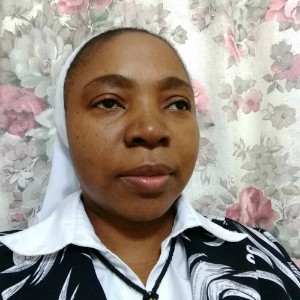 Teresa Anyabuike is a Sister of Notre Dame de Namur living in Ilorin, Kwara state, Nigeria. For a time, she was the coordinator of a Catholic community self-help association, a department of the Justice, Development and Peace Mission in the Ilorin Diocese. Currently, she is serving as a website and social media manager for her congregation.
Teresa Anyabuike is a Sister of Notre Dame de Namur living in Ilorin, Kwara state, Nigeria. For a time, she was the coordinator of a Catholic community self-help association, a department of the Justice, Development and Peace Mission in the Ilorin Diocese. Currently, she is serving as a website and social media manager for her congregation.
Experiences, good or bad, are lessons that bring us closer to God.
I knew nothing of sisters' lives, so had no expectations when I finally joined them. I simply followed my heart and went. I just wanted to be happy on my journey of faith.
Reflecting on that journey, I'm grateful to God and those who have shaped and formed me. And God has not finished with me yet!
My leader in a Marian society challenged us to pray the rosary every day for a week. I did it out of competitiveness but have prayed it daily ever since. And I believe the stories of the saints were the foundation of my vocation.
One lesson from those was to do little things well: pick up trash, look cheerful, be a peacemaker. Once, I picked up a sharp object. When someone asked if I was the one who dropped it, I said, "It could injure someone." The good left undone could hurt another.
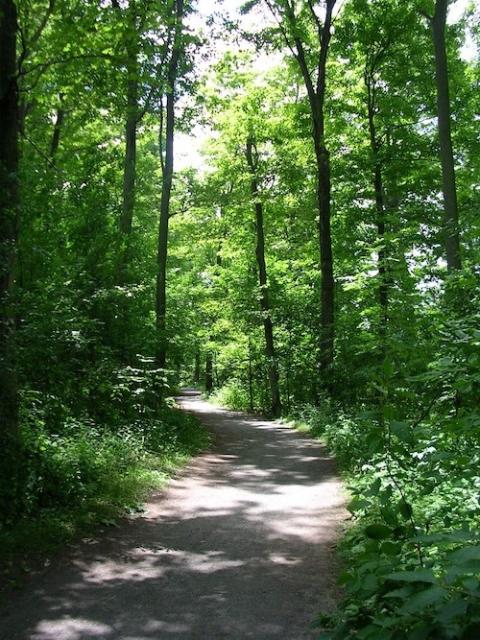
(Lucy Bethel)
After that, one of the other people in my group removed a piece of wood from the floor, and I was glad my little act of kindness had encouraged another. An act of kindness is contagious.
The hymn "Follow Me" brought tears to my eyes, making me wonder: Should I complete this vocational journey or offer my life in a different way? I just said: "God, help me," and my inner joy and peace convinced me that was right.
The first verse of that song ends: "I do not offer comfort, but in me will all happiness be found," which was comforting because all I desire is to be happy following Jesus. The road wasn't smooth, but each time I remembered the promise in that song, I found the courage to go on.
After my first vows, I was sent to teach in a nursery and primary school. I knew nothing about teaching and was totally confused about how to handle the children. But God sent me to that ministry for a reason: maybe to make me humble and simple like children?
I prayed earnestly and met with the school head, one of my sisters. She understood and offered to guide me in the ministry.
Following her direction, I taught the children well, and they and their parents were happy. It was a miracle. I thanked God for my sister's help. I was completely overwhelmed with the children's success and looked back on my ministry there with gratitude to God. You never know what you can do until you are challenged.
Challenged to learn humility and simplicity, I surrendered to God and learned from those I was sent to teach.

(Patrice Colletti)
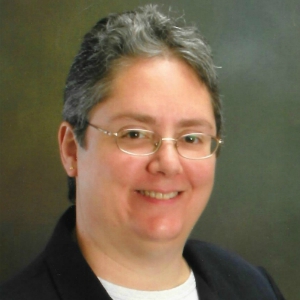 Patrice Colletti is a Sister of the Divine Savior in South Dakota who helps lead the Kateri Initiative, a pastoral ministry that focuses her apostolic religious community on authentic, culturally sensitive interactions. She works on the Sisseton Wahpeton Sioux Tribe's reservation in South Dakota, serving as an educational leader in the tribal school system, teaching, mentoring teachers, and supporting the tribal nation's efforts at self-determination and its claim to sovereignty.
Patrice Colletti is a Sister of the Divine Savior in South Dakota who helps lead the Kateri Initiative, a pastoral ministry that focuses her apostolic religious community on authentic, culturally sensitive interactions. She works on the Sisseton Wahpeton Sioux Tribe's reservation in South Dakota, serving as an educational leader in the tribal school system, teaching, mentoring teachers, and supporting the tribal nation's efforts at self-determination and its claim to sovereignty.
I am, by my nature, a planner. My journals contain pages of "what if?" and "I wonder how ...?"
I used to backpack alone for weeks in remote wildernesses, trekking in trail-less places: the Grand Canyon rim to rim, "peak bagging" in the Adirondack Mountains. Planning was half the fun.
We Salvatorians have often used the theme "make the path by walking" at meetings. This approach challenges the planner in me. I can't see far enough ahead. We don't know how we'll get there; do we even know where are we headed? Grab the topographical maps!
I was planning to write a reflection on living into the unknown in the midst of global pandemic, economic struggles, civil rights crises, climate crisis and political discombobulation. Instead, I wrote this the day after seven challenging months of diagnostic procedures that finally revealed a diagnosis of a rare neurological disease that has no cure but can be treated. I stand at a precipice, peering into an untracked wilderness.
When you backpack in true wilderness, you don't just plow ahead when there is no clear path. Treatment options? Mobility? Remission? Progression? Relapse? How will I integrate this "new normal" into my ministry? What if ...?
In wilderness travel, your topographical map and compass remain vital but don't show everything. You cannot tell what lies between Here and There. If you merely strike out, you will get lost.
You learn to look behind you in order to move ahead, identifying two or more landmarks behind you, noting them on your map. You pick some landmark you can see in the woods ahead. You keep reorienting, landmark to landmark, as you move through difficult terrain. This method gives both direction and courage to move into the tangled wilderness of the unknown future.
This pause looking back to move ahead is the vantage point that lets me see God's presence and God's action in a colleague that makes me COVID masks; my school principal, who brings me groceries; the efforts of my local doctor; and the listening hearts of my community, family and friends. God's been there in my past — rarely in breathtaking transformative changes, but in multitudinous small moments of my life and through the people in my life.
The future is full of unknowns for all of us. There are no roads or road signs here. We look back to note the landmarks that prove God's loving action in our past and find a landmark ahead toward which we will move. We travel with confidence.
We will "make the path by walking."





